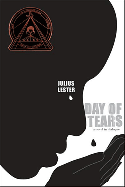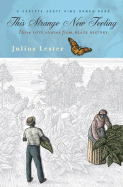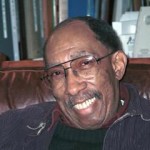TeachingBooks.net is delighted to welcome award-winning author Julius Lester as our featured guest blogger.
Each month, we ask one distinguished author or illustrator to write an original post that reveals insights about their process and craft. Enjoy!
“A Sacred Place in Each of Us”
by Julius Lester
Photo provided by Julius Lester, 2009
 As a writer, I make no distinction between my books for children and those for adults. In both I want to do many things: tell an engrossing story, create characters in whom readers see reflections of themselves, and, above all, perhaps, introduce readers to language as a source of wonder and power. I want the language to carry readers beyond the narrows of reason and into the infinity of the imaginative.
As a writer, I make no distinction between my books for children and those for adults. In both I want to do many things: tell an engrossing story, create characters in whom readers see reflections of themselves, and, above all, perhaps, introduce readers to language as a source of wonder and power. I want the language to carry readers beyond the narrows of reason and into the infinity of the imaginative.
As a writer, I take great care to craft language that sings, that evokes, that touches the imagination, because I want readers to experience language in the fullness of its power. I believe it is the writer’s responsibility to create the language through which we recognize our souls. This responsibility may weigh more heavily on those of us who write for children, and it should because it is through our words that children first encounter the possibilities of language, first understand that there are words for inchoate feelings, and that words can give one the power to not only express one’s emotions, but through words we gain the power to create feelings and pictures in the lives of others.
I think of writing as a sacred trust in which I re-imagine the possibilities of living in the soul. My books are consciously directed at the soul of the reader which means that what I write is an expression of my soul. I define the soul as that piece of the Divine which has been put into my keeping, that piece of the Divine that has been put into your keeping.
 My sacred trust as a writer embraces what Henry James described as life’s “buzzing, blooming confusion.” To embrace this wonderful chaos we call life, we must cease living as if the story of humanity began with our births and will end with our deaths. We are at once unique individuals with special gifts, and we are also mere skulls. For 40 years I have kept a human skull near my desk to remind me that as unique as I am, I am also a skull, and my years as a skull will be infinitely longer than the pitifully few years of my unique individuality.
My sacred trust as a writer embraces what Henry James described as life’s “buzzing, blooming confusion.” To embrace this wonderful chaos we call life, we must cease living as if the story of humanity began with our births and will end with our deaths. We are at once unique individuals with special gifts, and we are also mere skulls. For 40 years I have kept a human skull near my desk to remind me that as unique as I am, I am also a skull, and my years as a skull will be infinitely longer than the pitifully few years of my unique individuality.
When I write, it is my sacred trust to write to your skullness, to love and cherish the fact that we are all skulls, and life is all too short and we will all die much too soon. This is the human reality and because this is so, how dare we expend so much energy, so much time, so much intelligence on race, gender, religion and nationality. How absurd we are to invest meaning in skin color and whether one has breasts or not, and where one lives and whether one goes to this church or that mosque. How pathetically stupid!
My audience is that part of you which exists beyond and separate from definitions of gender, race and all the socio-political definitions which hang from our limbs and rattle like the chains of Jacob Marley’s ghost. There is a sacred place in each of us, whether we know it or not. It is from that place I seek to write, and it is to that place in you my words seek to go.



Leave a Reply